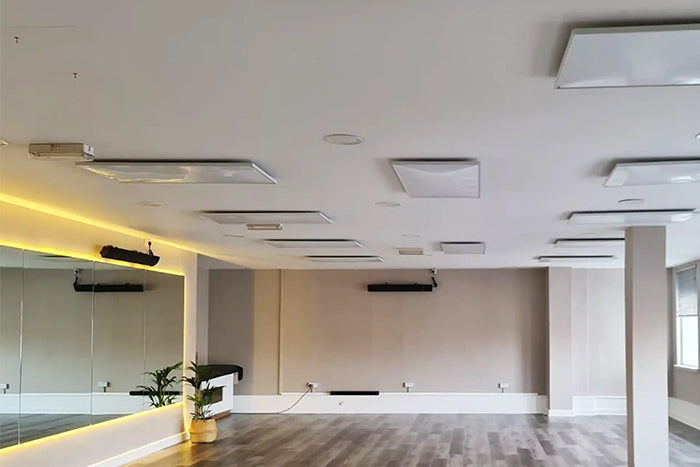Achieving Net Zero Took a Major Step Backwards This Week
We’re not trying to sell you anything this week. We want to talk about Global Warming and what’s being done to slow it down and hopefully achieve ‘Net Zero’. As a business we never talk politics, but we do have views on important issues. You may, like us, think Global Warming is a genuine phenomenon as demonstrated by a significant change in climate – for example Storm Éowyn these past few days. Older readers of this mail may remember that 40, or even 20 years ago, storms of this ferocity were incredibly rare.
Alternatively, you might, like Donald Trump and others, believe Global Warming is ‘fake news’ and a hoax. But whatever your view, the concerted effort by most civilised countries in the world to move towards ‘Net Zero’, and a reduction in Global Warming, took a major hit on January 20th with Donald Trump’s inauguration.
A Train Smash for Sustainability?
The decision by the USA’s 47th President to withdraw from the international agreement on climate change, aka The Paris Climate Accord, abandon his country’s Net Zero action plan, remove any pressure on the automotive industry to produce electric vehicles, and ‘drill baby drill’ for fossil fuels is, simply on its own, a train smash for sustainability. In that other nations may feel encouraged to follow Trump’s lead, there is a potential multiplier effect.
Nanny State or Look After Your Grandkids?
So here’s the thing. Who should be responsible when it comes to cutting emissions? Is it ‘Big Government’ or is it a matter for individual conscience. In some respects, the first option sounds a bit ‘nanny-state-ish’. On the other hand, slowing or preventing Global Warming is all about what sort of future world Nannies and Granddads leave our grandchildren. From our personal point of view the UK Government is at least trying to do its bit – policies that encourage renewable energy technologies, carbon reductions, electric vehicles and the phasing out of gas boiler installation are positive moves.
Who Owns the Duty of Care?
Older readers may remember when heating technology was a coal fire or paraffin heaters that resulted on ice on the inside of bedroom windows when we woke up. Although, probably, most people reading this will, over time, have had the benefit of central heating. After all being warm has become one of life’s accustomed little luxuries. But, if having had that benefit from the burning of fossil fuels, along with the luxuries of car ownership, airline travel, a better choice of food year-round, and other value-adds, we have caused the world to spiral into climate trauma, perhaps it is down to each and every individual to do their bit in the aim for Net Zero. Especially the older generation.
Your Heating Strategy Will Have to Change Soon Anyway
If like 78% of homeowners in the UK you heat your house in a traditional way, with a gas boiler, at some stage that will have to change. Initially the Government had planned to ban the installation of new gas boilers in 2026 – that date has now been moved back to 2035. With the average lifespan of a gas boiler being 10 – 15 years, the writing in 2025 is on the wall for most homes. Look at the maths another way and it means somewhere around 8% of homes will need a boiler replaced each year. With 30 million homes in the UK that’s a lot of boilers failing annually – well, we think around 2.4 million is a lot.
What Are the Sustainable Replacement Options?
There are two main practical options to replace gas to heat entire homes:
-
Heat pumps – much vaunted by the Government, but with a high cost of installation and annual maintenance costs. These are perfectly workable in modern houses with good installation, albeit subject to regulations with regard to their proximity to neighbouring properties. They are not however practical in older houses with poor insulation, and houses with ‘interesting’ shaped and sized rooms, especially those with high ceilings.
-
Infra-Red – obviously we’re a little bit biased about Infra-Red heating panels and IR bars as that’s the business we’re in. But re-purposing your home heating using Infra-Red is cheaper with regard to installation and much lower on maintenance costs – everything is fine until something goes wrong in which case you just replace the heating panel. It’s a bit like when your desktop printer goes wrong, it’s cheaper to replace it than repair it.
Infra-Red and Solar Panels – A Win-Win for Global Warming and Sustainability
If you really want to be socially conscious of the needs of sustainability, and minimise your own domestic impact on Global Warming, Infra-Red heating aligned with solar panels is the ultimate win-win for working towards Net Zero. The great news is that if you have the ability to install solar and Infra-Red the combined installation and capital costs still tend to be below those of Heat Pumps.
We Might Not Be Able to ‘Top-Trump’ the USA – But We Can Still Do Our Bit
Given Donald Trump’s dogmatism and isolationist ‘America first’ philosophies, it seems set to be a bad backdrop to any internationally concerted attempt to redress Global Warming. But, as individuals, when the opportunity arises, whether that be minimising the air miles incurred by our avocados, or changing our domestic heating strategies, we have volition. How you choose may determine the way the world looks to our children and grandchildren.



